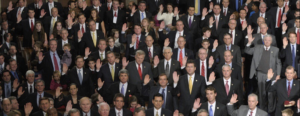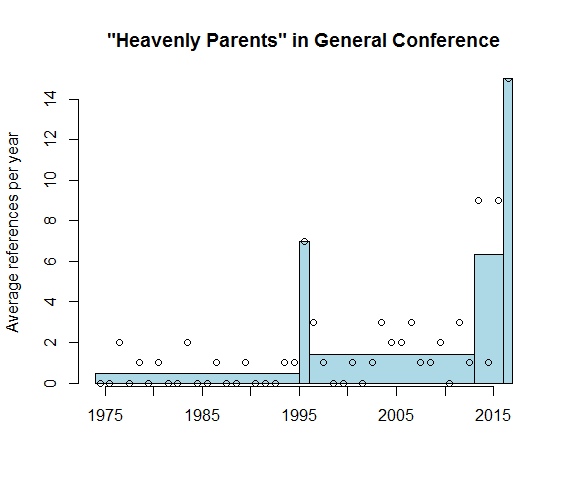White men are 31% of the US population, but hold 65% of elected offices in the United States.
That 31% of the population is also:
- 60% of the authors reviewed in The New York Times
- 82% of film directors and most of the speaking characters
- >90% of Fortune 500 CEOs
- most film executives, movie producers, and sports team owners
- 98% of presidents
- and, of course, 100% of LDS prophets and apostles.
With power in our society so thoroughly dominated by white people, and men in particular, the stories and perspectives we’re exposed to run the gamut, to paraphrase Dorothy Parker, from A to B. I like white men–I’m related to them, friends with them, work with them–and their personalities are interesting and their opinions worth considering, to be sure, but still: seeing and hearing from white men so much, in so many places of power and influence, is like eating the same thing every day. Variety is the spice of life, and I’m hungry for more and different foods in my diet.
As an example of a similar effect, since I’m a book lover, think of novels about the Holocaust. I’ll start: The Book Thief, All the Light We Cannot See, Number the Stars, The Reader, Suite Française, Schindler’s List, Code Name Verity, The Last of the Just, The Boy in the Striped Pajamas, Everything Is Illuminated and I’m just naming the ones I’ve read, and not even including memoirs, non-fiction treatments, or movies. Many of these are great novels, and stories about the Holocaust are important. And yet, can you name nearly as many novels about the Khmer Rouge? I’ve got In the Shadow of the Banyan, and then it turns out the other I was thinking of was about Vietnam instead. And how many novels can you name about the 1990s genocide in Rwanda? I’ve gone out of my way to read about Rwanda after visiting there a few years ago, and I can still only name a few memoirs and non-fiction books. And where are the novels about the genocides in Bosnia, Armenia, Namibia, and many other places? Imagine how much more vibrant our literary landscape would be with a broadened range of cultures, histories, and individual stories to draw from, beyond those belonging to primarily white people in the West.
And on a Mormon note, imagine a General Conference with a leadership roster that reflected a truly international and truly diverse Church, instead of one dominated by white men. We’d be able to hear people speak about their personal experiences of growing up on farms in Utah and flying airplanes in Germany, but also of fleeing Spain during the Civil War, integrating the hospitality industry in the early 1970s, learning about the Church from Reader’s Digest, giving up a child for adoption by a friend, or sneaking through security checkpoints to get to church. I love that I can find those stories online (major shout-out to the Mormon Women Project!) but I want more of them everywhere–in my ward, in the Ensign, over the pulpit in General Conference.
We should end this overindexation of white men and their perspectives for all kinds of reasons–a world with more equal representation would better live up to the exhortation to recognize neither Jew nor Greek, bond nor free, male nor female–but, on top of all the reasons of justice and equality and striving for Zion, let add my complaint: this is boring.



